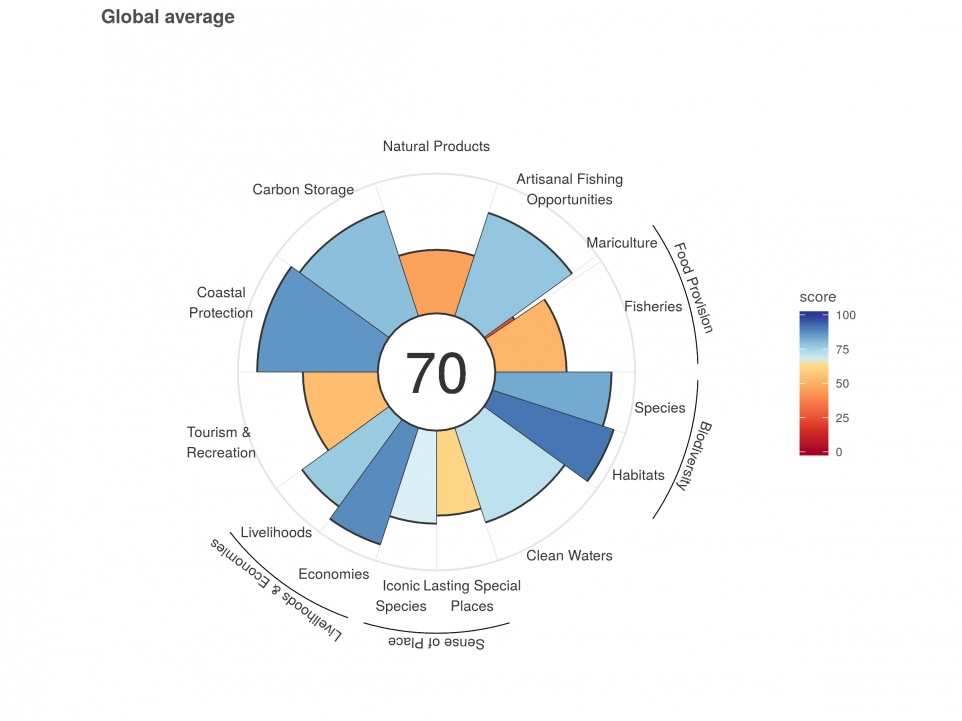The Ocean Health Index, a tool developed by the National Center for Ecological Analysis and Synthesis (NCEAS) and Conservation International, evaluates the benefits people derive from the ocean. The 2018 assessment findings highlight that although the ocean health is stable, improvements are important in order to establish a sustainable future.
Namely, the OHI is the only existent tool able to scientifically compare and combine key features from all dimensions of ocean health – biological, physical, economic, and social.
On December 11, OHI published its 7th assessment on global ocean health. Equal to two previous years, the 2018 avg score for the oceans was 70 out of 100. The findings point out that although the ocean health is stable, improvements are important in order to establish a sustainable future.
By the yearly assessment, OHI provides a whole view on how the people and marine system are faring and changing through time. According to OHI, in 2018 109 countries experienced a develop in ocean health, up 27 in comparison to 2017.
Although ocean health is most of the times circled with negative news, such as the reduction of coral reefs, and fish dead from plastic, OHI claims that there is still hope.
Since the first assessment in 2012, there have been important increases in some ocean health components, such as the designation of marine protected areas, growth of the mariculture sector, and increase in sustainable tourism.

The last years, OHI scores have remained relatively stable around 70 out of 100 and countries around the world are continuing to make commitments towards a sustainable ocean future.
Amongst the highest scoring in 2018, at 80 or above, were Aruba in the Caribbean and New Caledonia in the south Pacific, or uninhabited islands. Germany was the only one of these 17 high scorers with a population exceeding one million people.
On the other hand, 10 regions scored 50 or below, including seven African, one Central American, and two Middle Eastern nations.
Finally, 2018 also highlighted the expansion of the OHI community, with the inaugural cohort of OHI Fellows and independent assessments completed in Hawaii, Samoa, Bali, Kenya, Tanzania, and the Arctic.































































